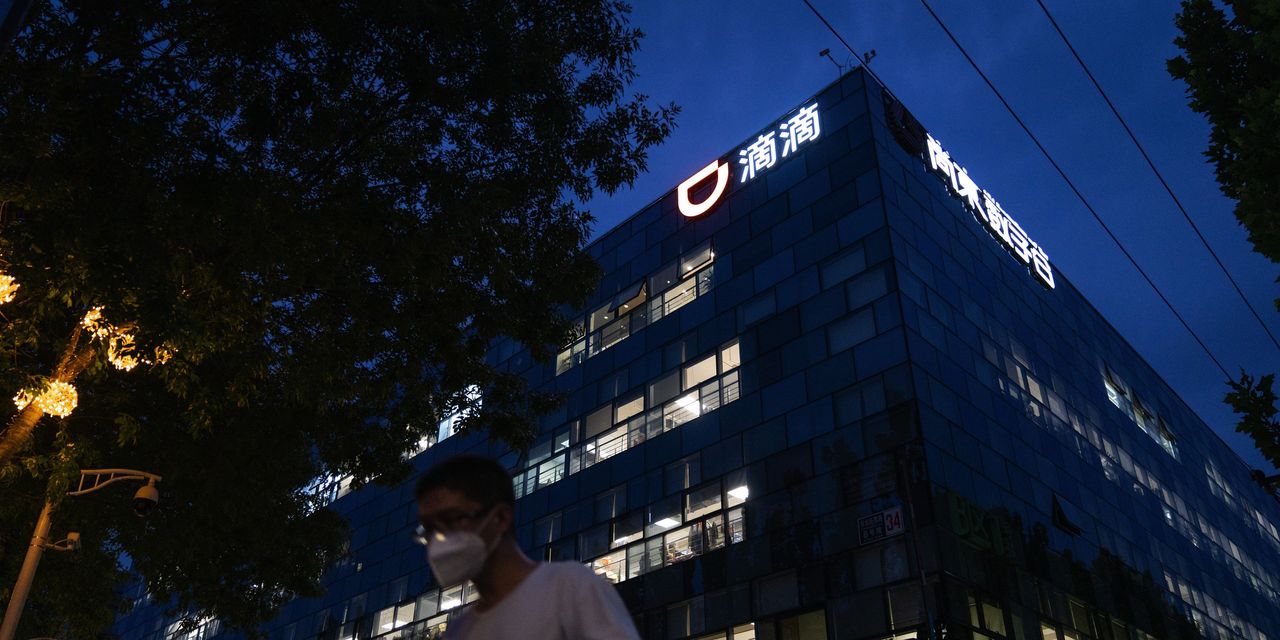Weeks before Didi Global Inc. went public in the U.S., China’s cybersecurity watchdog suggested the Chinese ride-hailing giant delay its initial public offering and urged it to conduct a thorough self-examination of its network security, according to people with knowledge of the matter.
But for Didi, waiting would be problematic. In the absence of an outright order to halt the IPO, it went ahead.
The company, facing investor pressure to list after raising billions of dollars from prominent venture capitalists, wrapped up its pre-offering “roadshow” in a matter of days in June—much shorter than typical investor pitches made by Chinese firms. The listing on the New York Stock Exchange raised about $4.4 billion, making it the biggest stock sale for a Chinese company since Alibaba Group Holding Ltd. ’s IPO in 2014.
Back in Beijing, officials, especially those at the Cyberspace Administration of China, remained wary of the ride-hailing company’s troves of data potentially falling into foreign hands as a result of greater public disclosure associated with a U.S. listing, the people said.
Didi’s American depositary shares began trading in New York on Wednesday, just a day before the ruling Communist Party celebrated its centenary.














































